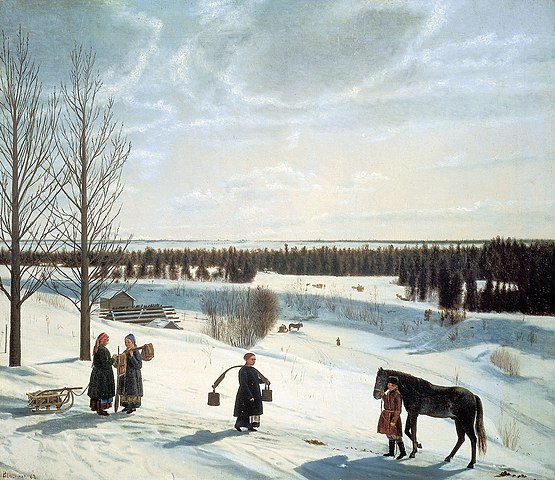
Through the generosity of the late Professor Benedict Anderson and Ajarn Charnvit Kasetsiri, the Thammasat University Library has newly acquired some important books of interest for students of Association of Southeast Asian Nations (ASEAN) studies, political science, literature, and related fields.
They are part of a special bequest of over 2800 books from the personal scholarly library of Professor Benedict Anderson at Cornell University, in addition to the previous donation of books from the library of Professor Anderson at his home in Bangkok. These newly available items will be on the TU Library shelves for the benefit of our students and ajarns. They are shelved in the Charnvit Kasetsiri Room of the Pridi Banomyong Library, Tha Prachan campus.
Among them is a newly acquired book that should be useful to TU students who are interested in history, political science, sociology, literature, Russian studies, and related subjects.
Leo Tolstoy, Writings on Civil Disobedience and Nonviolence is by Count Lev Nikolayevich Tolstoy, usually referred to in English as Leo Tolstoy. A Russian writer and author of the novels War and Peace (1869) and Anna Karenina (1878) and novellas The Death of Ivan Ilyich (1886) and Hadji Murad (1912), Tolstoy is usually seen as one of the greatest writers of fiction in the history of world literature.
The TU Library collection includes many books by and about Tolstoy.
In the 1870s, Tolstoy became a fervent Christian anarchist and pacifist. His ideas on nonviolent resistance, expressed in such works as The Kingdom of God Is Within You (1894), influenced Mahatma Gandhi and the Reverend Dr. Martin Luther King Jr.
Tolstoy’s principle of non-violent resistance or what he called non-resistance was later developed by other social and political leaders.
Among his prominent followers were the philosopher Ludwig Wittgenstein, the labor leader Cesar Chavez, and the social activist Dorothy Day, a founder of the pacifist Catholic Worker Movement.
Among Tolstoy’s political writings was A Letter to a Hindu, written to offer support for India’s independence from colonial rule.
In A Letter to a Hindu, Tolstoy argued that only through the principle of love could the Indian people gain independence from colonial rule. Tolstoy saw the law of love in all the world’s religions, and argued that the individual, nonviolent application of the law of love in the form of protests, strikes and other forms of peaceful resistance were the only alternative to violent revolution. These ideas ultimately proved to be successful in 1947 in the culmination of the Indian independence movement.
In this letter, Tolstoy mentions the works of Swami Vivekananda. This letter, along with Tolstoy’s views, preaching, and his 1894 book The Kingdom of God Is Within You, helped to form Mohandas Gandhi’s views about nonviolent resistance.
In A Letter to a Hindu, Tolstoy wrote:
The government assures the people that they are in danger from the invasion of another nation, or from foes in their midst, and that the only way to escape this danger is by the slavish obedience of the people to their government. This fact is seen most prominently during revolutions and dictatorships, but it exists always and everywhere that the power of the government exists. Every government explains its existence, and justifies its deeds of violence, by the argument that if it did not exist the condition of things would be very much worse. After assuring the people of its danger the government subordinates it to control, and when in this condition compels it to attack some other nation. And thus the assurance of the government is corroborated in the eyes of the people, as to the danger of attack from other nations.
Patriotism in its simplest, clearest, and most indubitable signification is nothing else but a means of obtaining for the rulers their ambitions and covetous desires, and for the ruled the abdication of human dignity, reason, and conscience, and a slavish enthralment to those in power. And as such it is recommended wherever it is preached.
Patriotism is slavery.
Those who preach peace by arbitration argue thus: Two animals cannot divide their prey otherwise than by fighting; as also is the case with children, savages, and savage nations. But reasonable people settle their differences by argument, persuasion, and by referring the decision of the question to other impartial and reasonable persons. So the nations should act today. This argument seems quite correct. The nations of our time have reached the period of reasonableness, have no animosity toward one another, and might decide their differences in a peaceful fashion. But this argument applies only so far as it has reference to the people, and only to the people who are not under the control of a government. But the people who subordinate themselves to a government cannot be reasonable, because the subordination is in itself a sign of a want of reason.
How can we speak of the reasonableness of men who promise in advance to accomplish everything, including murder, that the government — that is, certain men who have attained a certain position — may command? Men who can accept such obligations, and resignedly subordinate themselves to anything that may be prescribed by persons unknown to them in Petersburg, Vienna, Berlin, Paris, cannot be considered reasonable; and the government, that is, those who are in possession of such power, can still less be considered reasonable, and cannot but misuse it, and become dazed by such insane and dreadful power.
This is why peace between nations cannot be attained by reasonable means, by conversations, by arbitration, as long as the subordination of the people to the government continues, a condition always unreasonable and always pernicious
But the subordination of people to governments will exist as long as patriotism exists, because all governmental authority is founded upon patriotism, that is, upon the readiness of the people to subordinate themselves to authority in order to defend their nation, country, or state from dangers which are supposed to threaten.
His The Kingdom of God Is Within You states:
The most difficult subjects can be explained to the most slow-witted man if he has not formed any idea of them already; but the simplest thing cannot be made clear to the most intelligent man if he is firmly persuaded that he knows already, without a shadow of doubt, what is laid before him. […] The whole historic existence of mankind is nothing else than the gradual transition from the personal, animal conception of life to the social conception of life, and from the social conception of life to the divine conception of life. […] Armies are necessary, before all things, for the defense of governments from their own oppressed and enslaved subjects.

(All images courtesy of Wikimedia Commons)


